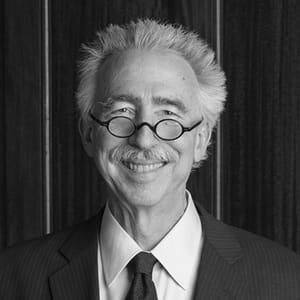Climate Change and Collective Action: The Knowledge Resistance Problem
By Nicholas B. Dirks

June 1 marked the official start of hurricane season and already tropical storms Ana, Bill and Claudette have made their respective debuts.
And while summer has only just officially started, early hot dry conditions in Arizona, California, Oregon, Utah and New Mexico are exacerbating enormous wildfires putting a strain on local first responder services. Severe drought conditions in the west is restricting the use of essential water supplies. Its impact on the nation’s food supply has yet to be determined.
In May, National Oceanic and Atmospheric Administration (NOAA) released revised temperature “normals” which show a significant shift towards warmer temperatures. We are far from the state of readiness required to deal with the inevitable outcomes.
Scientists have been sounding the alarm about the human impact upon climate change for well over a century. French mathematician and physicist Joseph Fourier, who is generally credited with the discovery of the greenhouse effect, wrote in an 1827 paper that: “The establishment and progress of human societies, the action of natural forces, can notably change, and in vast regions, the state of the surface, the distribution of water and the great movements of the air.”
But unlike the pandemic, which was a highly visible emergency with nightly news reports showing crowded ER’s and patients on ventilators, the impact of climate change has always been a much tougher sell. In addition, when proposed changes come up against “the pocketbook,” there is pushback.
Recent Research and “Crisis Fatigue”
A recent paper published in Annals of the New York Academy of Sciences — The distributional impact of climate change – discusses the various impacts of climate change from both a social and environmental perspective. As with many other global issues, the impacts of climate change will most certainly affect poorer countries even more severely, but that doesn’t let the rich ones like the United States off the hook.
Then there is the risk of “crisis fatigue”—the continual sounding of an alarm about something that is not immediately visible, to the point that the problem is so overwhelming that individual actions won’t help. But as we learned from Covid-19, there is no local crisis of this kind that doesn’t soon become a global crisis.
Science is an incremental process, and scientific knowledge is based on multiple arguments, experiments, and developments. However, the scientific consensus that climate change is not only real, but escalating faster than many scientists had predicted, is based on measurements and models that issue a clear and urgent warning. We need to act now, and fast, to drive effective policy to combat climate change.
Training scientists to be better communicators is a good step, but much more must and can be done to develop a public consensus that might mirror the scientific consensus. Climatologists, meteorologists and environmental scientists play an important role, but we need to enlist all the disciplines of the academy (including social scientists and humanists), all the agencies of government (domestically and internationally), and all the major sectors of the economy to help chart a way forward.
The Impediment of Knowledge Resistance
As Mikael Klintman, in his recent book, “Knowledge Resistance,” has argued, “it becomes crucial to ask what we as individuals and groups can do about knowledge resistance in cases where, in the long run, it is problematic to ourselves and to others – humans, animals, and the environment alike.”
Professionals from healthcare, insurance, business, as well as legal and financial sectors can help scientists and public officials “sell” appropriate actions and solutions. The average person may not pay much mind to the science behind reducing carbon emissions but put in the context of how much taxpayer money is used to treat patients who have respiratory conditions exacerbated by polluted air from auto emissions, and it’s a different conversation.
Policymakers supporting the development of wetlands or sensitive barrier islands might be more inclined to rethink such plans if voters are provided with data on how much it is likely to cost when severe storms hit, in terms of increased taxes to pay for emergency relief, rebuilding, and higher insurance rates. Like the warnings and recommendations about COVID-19, climate change has become a deeply partisan issue, but preparedness for the long-term impacts of climate change is not “hysterics” or “alarmist” as some would argue.
Ignoring the impact of COVID-19 cost millions their lives, and billions of dollars in healthcare costs and lost income. The economic cost of lost jobs and wages, as well as the cost of care of COVID patients, especially those who still have long-term health effects, has still to be tallied.
All the data are showing us what will happen if we are not ready. Science can deliver on the knowledge, but it will take genuine collective action to hone and sell the messages that can tread that fine line between preparation and panic.
